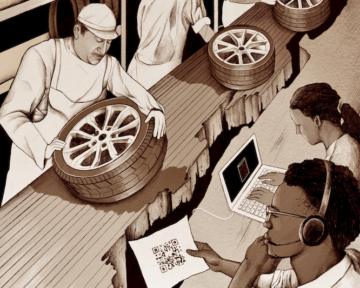Judith Schalansky at The Paris Review:
 One stifling hot night in early August, I dreamed, as I always do when I have a fever, the old, familiar dream: the earth opens up before my feet, a gaping pit appears, and into this pit I fall, then clamber straight back out, as eager as a cartoon character, only to fall into the next pit that suddenly yawns before me. An endless obstacle course engineered by some higher power, an experiment going nowhere, the opposite of a story. This dream has followed me since childhood and is probably as old as the realization that I will, one day, end up in a pit forever. As a piece of drama, it is extremely simple, and yet it’s an effective dream and no more unoriginal than that of my friend Sibylle, who told me over breakfast a few days later that she has regular nightmares of being swept away by a vast, tsunami-like wave.
One stifling hot night in early August, I dreamed, as I always do when I have a fever, the old, familiar dream: the earth opens up before my feet, a gaping pit appears, and into this pit I fall, then clamber straight back out, as eager as a cartoon character, only to fall into the next pit that suddenly yawns before me. An endless obstacle course engineered by some higher power, an experiment going nowhere, the opposite of a story. This dream has followed me since childhood and is probably as old as the realization that I will, one day, end up in a pit forever. As a piece of drama, it is extremely simple, and yet it’s an effective dream and no more unoriginal than that of my friend Sibylle, who told me over breakfast a few days later that she has regular nightmares of being swept away by a vast, tsunami-like wave.
I was reminded that of all the arts I would like to master, lucid dreaming is at the top of the list: you sleep and dream, fully aware that you are asleep and dreaming, but the real skill lies in being able to intervene in the events of your dream and steer the plot in your favor.
more here.

 Science journalism is really about everything, I like telling my science-journalism students, because science is really about everything. Take The Golden Bowl, the insanely prolix novel by Henry James, which I read as penance after zipping through a Stephen King gore-fest. The Golden Bowl, I’d heard, is a slog compared to thrillers like The Portrait of a Lady and Turn of the Screw, but James called Bowl his “solidest” novel. By that he must have meant the most Jamesian because The Golden Bowl reads like a parody of James. H.G. Wells’ comparison of James to a hippopotamus trying to pick up a pea comes to mind.
Science journalism is really about everything, I like telling my science-journalism students, because science is really about everything. Take The Golden Bowl, the insanely prolix novel by Henry James, which I read as penance after zipping through a Stephen King gore-fest. The Golden Bowl, I’d heard, is a slog compared to thrillers like The Portrait of a Lady and Turn of the Screw, but James called Bowl his “solidest” novel. By that he must have meant the most Jamesian because The Golden Bowl reads like a parody of James. H.G. Wells’ comparison of James to a hippopotamus trying to pick up a pea comes to mind.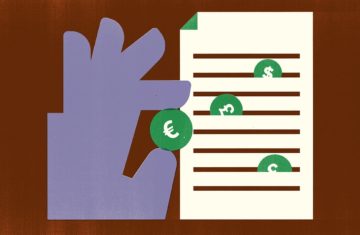 In April,
In April,  In a few weeks it will be 30 years since
In a few weeks it will be 30 years since  By now, we’ve seen the ChatGPT parlor tricks. We’re past the novelty of a cake recipe in the style of Walt Whitman or a weather report by painter Bob Ross. For the one-hundredth time, we understand the current incarnation of large language models make mistakes. We’ve done our best to strike a studied balance between doomers and evangelists. And, we’ve become less skeptical of “emergent” flashes of insight from the aptly-named foundational models. At the same time, Google, Meta and a list of hopeful giant swatters have released credible competitors to ChatGPT.
By now, we’ve seen the ChatGPT parlor tricks. We’re past the novelty of a cake recipe in the style of Walt Whitman or a weather report by painter Bob Ross. For the one-hundredth time, we understand the current incarnation of large language models make mistakes. We’ve done our best to strike a studied balance between doomers and evangelists. And, we’ve become less skeptical of “emergent” flashes of insight from the aptly-named foundational models. At the same time, Google, Meta and a list of hopeful giant swatters have released credible competitors to ChatGPT. I MAY HAVE BEEN INVITED
I MAY HAVE BEEN INVITED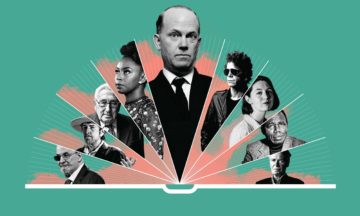 A
A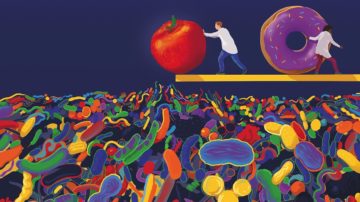 IN THE LATE
IN THE LATE The Federal Reserve’s latest
The Federal Reserve’s latest 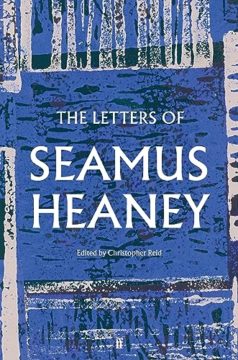 I
I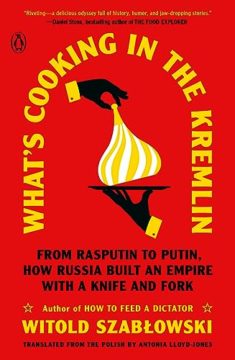 Witold Szablowski describes a number of surprising dishes in his entertaining yet unnerving new book, “What’s Cooking in the Kremlin,” which explores the last century of Russian history through its food. But none is as surreal as the recipe for one of Lenin’s favorites. The instructions for making his “scrambled eggs using three eggs” orders you to break the eggs but not to beat them. What Lenin called “scrambled eggs” were actually fried eggs, with their yolks and whites intact — not scrambled at all.
Witold Szablowski describes a number of surprising dishes in his entertaining yet unnerving new book, “What’s Cooking in the Kremlin,” which explores the last century of Russian history through its food. But none is as surreal as the recipe for one of Lenin’s favorites. The instructions for making his “scrambled eggs using three eggs” orders you to break the eggs but not to beat them. What Lenin called “scrambled eggs” were actually fried eggs, with their yolks and whites intact — not scrambled at all.